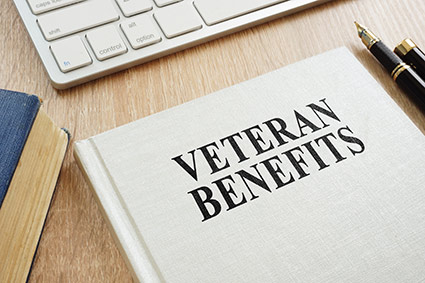
By Gina M. Barry, Bacon Wilson P.C.
As our nation’s veterans grow older, they face increased health and financial challenges. Fortunately, their service in our nation’s military may qualify them for benefits from the Department of Veterans Affairs (VA) to help them overcome these challenges. Elderly veterans may be eligible for a wide variety of benefits, including home loans, insurance, disability compensation, pension, health care, and burial. This article will focus on pension benefits and touch upon long-term care at the Soldiers’ Home.
Wartime veterans who are at least 65 years of age and have limited or no income may qualify for the Veterans Pension benefit. When calculating the amount of the pension, the VA deducts the veteran’s countable income from the annual pension limit. The pension can provide additional income up to the annual pension limit. When there are also significant health concerns, Aid and Attendance (“A&A”) benefits or Housebound benefits may be added to the annual pension limit. It is important to note that A&A and Housebound benefits may also be available to the veteran’s spouse.
The eligibility rules for the pension benefit require that the veteran must have (1) served at least 90 days of active service, one day of which was during war time, and (2) been discharged honorably. Veterans who entered active duty after Sept. 7, 1980, will need to have served at least 24 months or a whole tour, including 1 day during war time, but with some exceptions. This pension would also be available to a veteran who is totally and permanently disabled or a patient in a nursing home receiving skilled nursing care.
Aside from meeting the service criteria, the veteran must have countable family income that is below the yearly limit and assets that are valued at or less than the net worth limitation, which counts all assets except the primary residence, one automobile, and personal effects. The VA has also implemented a three-year look-back period, which requires disclosure of any transactions involving gifting of or selling assets below market value during this three-year period. Such transactions would delay the start of VA pension benefit payments.
Once eligibility for the basic pension is established, veterans who are seriously disabled may be able to qualify for an increased monthly pension amount under the A&A or Housebound programs. A&A benefits are available when the veteran meets one of these additional criteria:
Alternatively, a veteran may qualify for an increase due to Housebound Pension benefits. Veterans are eligible for these additional benefits when they have (1) a single permanent 100 percent rated disability causing permanent and substantial confinement to their residence; or (2) a single permanent 100 percent rated disability and another 60 percent rated disability or disabilities. When applying, veterans would need to provide documentation from a physician or other attending medical professional proving the specific medical criteria needed to warrant the increased A&A or Housebound benefits.
When a veteran requires long term care, obtaining admission into the Soldiers’ Home may be an option. These homes are provided by the joint efforts of the state Veterans Department and the VA. Most of these homes are nursing homes, although some provide assisted living and other care.
To be eligible, aside from being honorably discharged, veterans must have (1) served 180 days of regular active-duty service; (2) served 90 days of active-duty service, at least one day of which was during wartime; or (3) served in wartime and were awarded the Purple Heart or received a service-connected disability. Unlike MassHealth, the Soldiers’ Home does not have an asset limit, nor does it penalize gifting. Rather, the Soldiers’ Home bases its cost on the veteran’s income, with the maximum cost being just under $1,000 per month, which is clearly much less than the private pay rate at any comparable local facility. A primary drawback is the length of the wait list with up to 1.5 years waiting not being uncommon.
A veteran can apply by submitting their own application, or they can work with an accredited attorney, claims agent, or Veterans Service Organization. To access a list of authorized representatives to assist with claiming VA benefits, visit https://www.va.gov/ogc/apps/accreditation/index.asp. As obtaining eligibility for these benefits can ensure an appropriate quality of life and care, as well as ease financial burdens, every veteran is encouraged to inquire into their eligibility.
Gina M. Barry is a partner with the law firm of Bacon Wilson, P.C., Attorneys at Law. She is a member of the National Association of Elder Law Attorneys, the Estate Planning Council, and the Western Massachusetts Elder Care Professionals Association. She concentrates her practice in the areas of estate and asset protection planning, probate and trust administration, guardianships, conservatorships, and residential real estate here in MA and in CT. She may be reached at 413-781-0560 or gbarry@baconwilson.com.